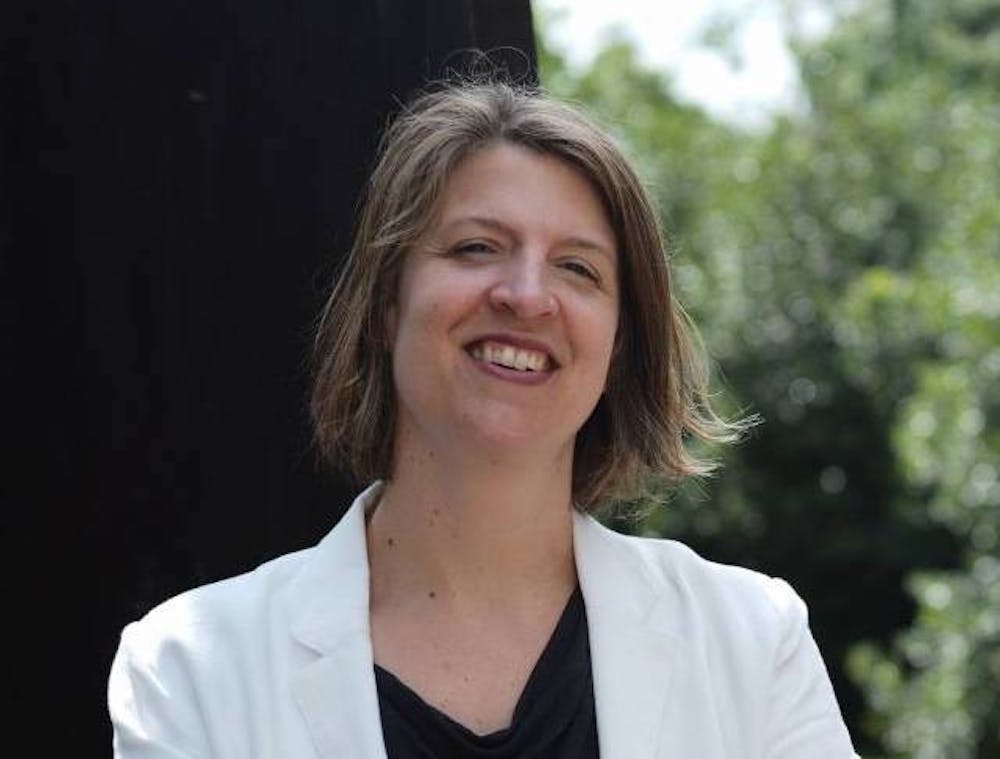Katherine Stanton, Associate Dean of the College, has been appointed as the new director of the McGraw Center for Teaching and Learning.
Having filled the role on an interim basis since July, she officially was named to the position in February.
Stanton’s academic career began in 2003 after she finished her Ph.D. in Literatures in English at Rutgers University. Then she saw that the McGraw Center had an opening.
“The McGraw Center posted a one-year position for Interim Assistant Director … so my very first job, the beginning of my professional career, was here at the McGraw Center,” Stanton said.
After one year as the Interim Assistant Director for the McGraw Center, she spent a few more years as Assistant Director, at which point she was responsible for leading the graduate pedagogy program.
Stanton then moved back with her family to Cambridge, Mass., where she spent 10 years serving a host of different roles at Harvard University.
She was first a Resident Dean of one of Harvard’s Houses, which she said are “analogous to the [residential] colleges here.”
As Resident Dean, she lived in the House and was responsible for about 400 students.
“I also taught in their Studies of Women, Gender, and Sexuality program, which I loved. It’s a great program,” Stanton said.
After the decade was over, Stanton and her family moved back to Princeton, where she rejoined the McGraw Center as Senior Associate Director for Teaching Initiatives and Programs for Faculty.
“My focus was on cultivating relationships with faculty members around their teaching,” Stanton said.
In the summer of 2019, after her predecessor Rebecca Graves-Bayazitoglu stepped down, Stanton accepted an Interim Directorship at the University. On Feb. 24, she officially dropped the “Interim.”

“It is exciting, and it feels like this wonderful homecoming — the very place where I started my academic career,” Stanton said.
Serving as an Associate Dean of the College, she said, allows her to converse with the other senior team and thus develop a very interesting perspective on the college. Seeing the general student experience at its broadest, she said she is able to analyze the big picture of things.
Because of her role, Stanton is able to address the two biggest problems that the McGraw Center presently faces.
The first, according to Stanton, is the challenge of having enough space, a common problem across the University. The McGraw Center is currently separated into three different locations across campus, with the most well-known section located Frist Campus Center. The other two branches are located in Lewis Library and on Prospect Avenue, near the E-Quad.
The second challenge is tutor recruitment. According to Stanton, it is difficult to find enough tutors and study hall leaders for the program. To fix this, she hopes to hold even more open houses and workshops to publicize to students. There is already a creative outreach system in place, in which the McGraw Center takes personal referrals from the residential college staff.
In the future, Director Stanton wishes to expand the program so that it includes faculty as well.
“I think we’re a very successful, very robust resource … we have really found an audience among students,” Stanton said. “I want to do the same in our work for faculty, so we also consult with faculty on their teaching, and that work is incredibly inspiring and energizing.”








